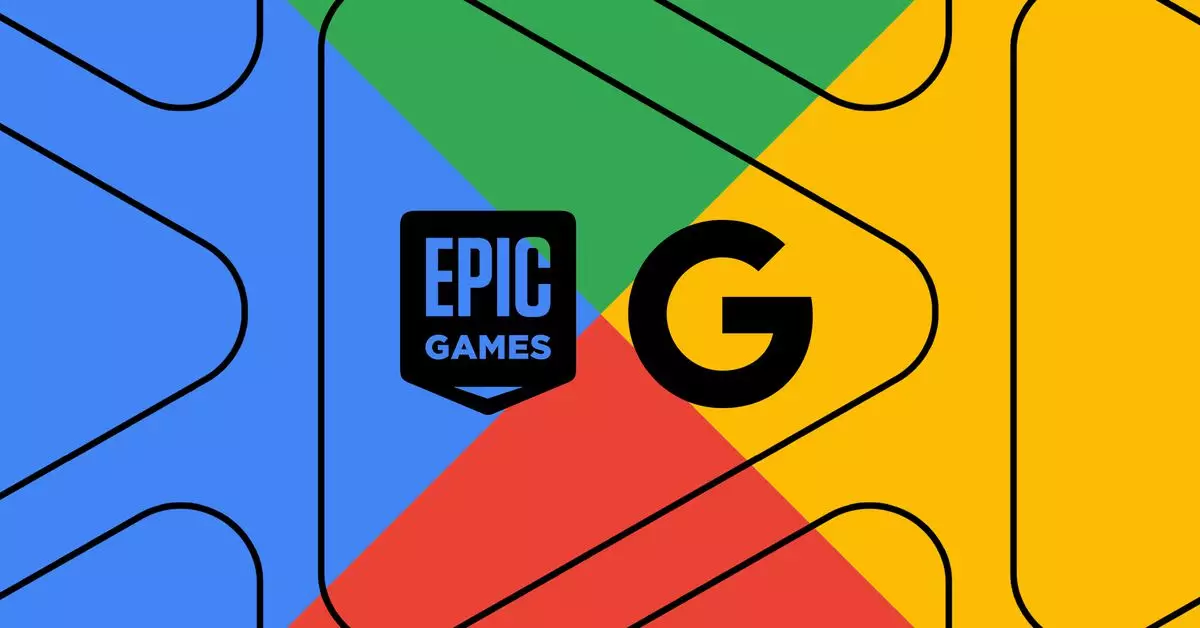The recent court ruling in the Epic Games v. Google case has brought about a significant watershed moment in the tech industry. As Judge James Donato issued his final decision, it has been made abundantly clear: the Google Play Store, long held as a monopoly by the tech giant, is on the verge of an unprecedented transformation.
The lawsuit against Google finds its roots in a broader debate surrounding the power dynamics within app ecosystems. Epic Games, the developer of the globally renowned game Fortnite, initiated legal proceedings back in August 2020, simultaneously targeting both Google and Apple. By updating Fortnite to bypass standard payment systems and levying a 30 percent surcharge on in-app purchases, Epic sought to level the playing field and challenge what it deemed as monopolistic practices by the billion-dollar tech companies.
What emerged from this case were revelations about Google’s operational tactics that many developers perceived as inhibiting their growth. The company’s grip on app distribution and billing was scrutinized, leading to a unanimous jury decision acknowledging that these practices amounted to monopolistic control over the app ecosystem. This ruling necessitated a detailed examination of how the Google Play Store could potentially evolve to incorporate more competitive business practices.
Effective from November 1, 2024, through November 1, 2027, Google must adhere to a set of stipulations that challenge its previously unassailable market position. Firstly, Google has been ordered to allow other third-party app stores to coexist within its platform. This effectively opens the floodgates for alternative developers hoping to establish a footprint in a marketplace that was previously dominated by Google.
Furthermore, developers are granted newfound freedoms that include notifying users about alternative payment methods and linking directly to external download platforms — a direct challenge to Google’s monopoly on payment and distribution. Perhaps most notably, the ruling stipulates that app developers will have autonomy over pricing structures without the constraints imposed by Google Play Billing.
In addition, Google is barred from engaging in several anti-competitive practices that have historically favored its ecosystem. This includes prohibiting exclusive payment arrangements, reducing financial incentives offered to developers who limit their app’s availability on other platforms, and abstaining from coercive pre-installation agreements with device manufacturers.
Despite these pronounced changes, Google is not entirely stripped of control over its platform. The ruling permits the company to implement necessary safety measures, which allows it to uphold a degree of oversight while integrating new competitors. This balance is critical, as ensuring both developer freedom and consumer security will be paramount as the app ecosystem shifts dynamically.
Moreover, a Technical Committee composed of representatives from both Google and Epic will oversee the implementation of these changes, mitigating potential disputes in the process. This committee will play a vital role in establishing operational protocols aimed at maintaining platform integrity while adhering to the new legal framework.
As the judgment unfolds, its ramifications extend beyond just Epic and Google; the outcome is poised to impact an entire industry. App developers, both large and small, may now have an opportunity to thrive without the constraints of monopolistic practices. Smaller developers could benefit significantly from the ruling, potentially increasing competition and innovation in app development, leading to more diverse offerings for consumers.
Conversely, Google’s anticipated appeal of the ruling raises questions about the permanence of these changes. Legal battles may protract the timeline for adaptation and foster an atmosphere of uncertainty. This ongoing tug of war between regulatory compliance and corporate interests exemplifies the complexities inherent in managing a rapidly evolving technological landscape.
The discussions stirred by this ruling highlight the importance of ongoing vigilance against monopolistic tendencies within the tech sector. Developers are encouraged to leverage this new landscape, while consumers stand to benefit from enhanced choices and lower costs.
As we step into this new era for Google Play, it is crucial to monitor how these changes manifest and what adjustments developers make as they navigate this transformed ecosystem. It remains a pivotal moment for both the app community and the broader tech landscape, marking the beginning of a more equitable distributive phase that could redefine our interactions with digital platforms. The future is uncertain, but the potential for progress has never seemed greater.

